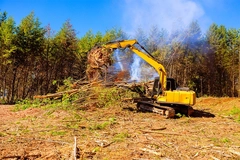
- Industry news
Industry news
- Category news
Category news
- Reports
- Key trends
- Multimedia
- Journal
- Events
- Suppliers
- Home
- Industry news
Industry news
- Category news
Category news
- Reports
- Key trends
- Multimedia
- Events
- Suppliers
Brazilian artisan cheese bacteria offers new opportunities for probiotic industry

03 Sep 2024 --- Scientists have identified three lactic acid bacteria strains from traditional Brazilian cheese that can benefit human health and supply the growing needs of the probiotic industry. These strains from the genus Lactobacillus are recognized for their probiotic potential and are used in the food industry, such as kombucha, and dairy products like yogurt, kefir and cheese.
The researchers analyzed three bacteria strains isolated from traditional cheeses such as Prato and Minas. These bacteria were part of the strain bank of the Center for Dairy Technology in Campinas, São Paulo state, Brazil, part of the country’s Food Technology Institute (ITAL).

“We selected these strains after screening the entire strain bank to see which isolates had been found to have the best fermentative, enzymatic and sensory properties in previous research conducted at Tecnolat,” explains Cristian Mauricio Barreto Pinilla, the study’s first author and a researcher at ITAL with a Ph.D. in food science and technology.
The research reveals that all three Lactobacillus isolates are safe for consumption, have potential as novel probiotics and have potent inhibitory effects against some of the pathogens that may be present in dairy products.
Probiotic potential
After selecting the strains, the team obtained the complete genomes of the isolates to identify them correctly and evaluate their functional properties and safety. The researchers also conducted in vitro tests to confirm the bacteria were safe and probiotic.
“We analyzed this information, focusing on the technological properties of the isolates, to produce pilot batches of Prato cheese containing each of the three strains. We also studied the changes in physicochemical parameters, bacterial communities, volatile compounds [responsible for aroma and flavor] and fatty acids during cheese ripening,” Barreto explains.
None of the three strains significantly affected the cheese’s physicochemical composition, as the researchers observed no changes in the fatty acid profile.
Although the study had good results, Barreto notes that more research is needed for the industry to use these strains and ensure their classification as probiotics. “We need to conduct tests in an animal model, followed by clinical trials that enable us to comply with the regulatory requirements. These procedures take time and are costly.”
 Barreto highlights a need to develop competitive, local companies that can produce bacterial cultures for traditional Brazilian products.The study was supported by the São Paulo Research Foundation and is published in Current Microbiology.
Barreto highlights a need to develop competitive, local companies that can produce bacterial cultures for traditional Brazilian products.The study was supported by the São Paulo Research Foundation and is published in Current Microbiology.
Benefiting local cheese industry
Microbial culture technology is well-established in multinational companies that supply cultures to Brazil. However, Barreto highlights a need to develop competitive, local companies that can produce cultures for traditional Brazilian products that meet the needs of small and medium producers for high-quality products with enhanced sensory properties.
“This kind of microorganism is easy to produce industrially, favoring studies designed to optimize the use of low-cost nutrients such as serum. Research along these lines is relevant to the needs of the cheese industry, which has significant growth potential but is cramped by the limited probiotic market, dominated by large multinational companies,” he details.
He adds that the researchers observed a drop in levels of undesirable volatile compounds during more extended maturation periods for cheeses containing the cultures, while each strain produced a different profile. Barreto explains that this is key for the diversification, quality and shelf life of cheese with a maturation period of over 25 days.
“We need to find out more about certain aspects, such as a possible reduction in deteriorating and pathogenic microorganisms in cheese due to the action of our Lactobacillus strains,” he details.










